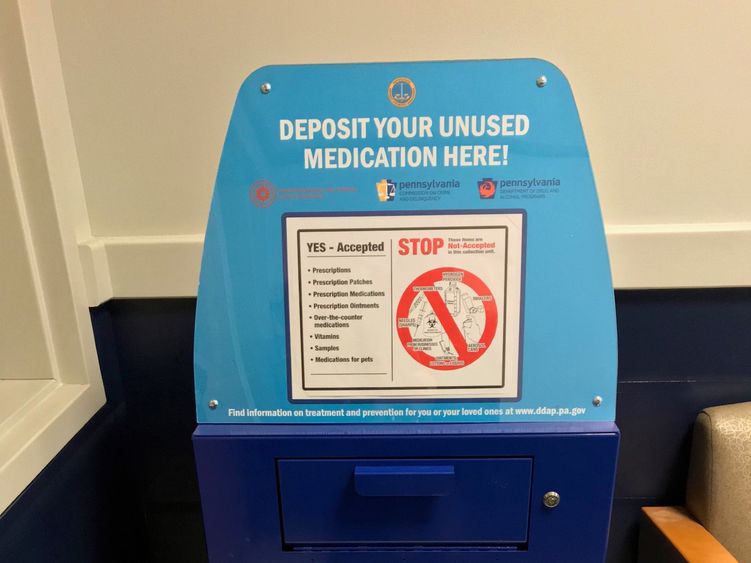
A secure bin, located in the University Park police station at 30 Eisenhower Parking Deck, offers a safe, convenient and responsible way to dispose of old medications. University Police offers this anonymous take-back service 24/7.
UNIVERSITY PARK, Pa. — Penn State police officers at Penn State Altoona and Penn State Fayette are hosting National Drug Take-Back Day events from 10 a.m. to 2 p.m. on Saturday, Oct. 23, which aim to provide a safe, convenient and responsible means of disposing of prescription drugs, while also educating the general public about the potential for abuse of medications.
Additionally, secure prescription collection bins are available year-round at Penn State Berks, Penn State Harrisburg and University Park.
Penn State students and employees, along with local community members, can participate in National Drug Take Back Day by visiting the following locations:
Penn State Altoona
University Police Station Lobby
Poplar Building
10 a.m. to 2 p.m.
Penn State Berks
Secure collection bin
Perkins Student Center
Penn State Fayette
University Police Station Lobby
Eberly Building (near the Eberly faculty parking lot)
10 a.m. to 2 p.m.
Penn State Harrisburg
Secure collection bin
Susquehanna Building Vestibule
University Park
Secure collection bin
University Police Station
30 Eisenhower Parking Deck
“Collection events and take-back bins serve as important tools in a larger effort to prevent the abuse or theft of unused and expired medications. They also offer a safe, accessible and convenient way to dispose of medication,” said Charlie Noffsinger, associate vice president of Penn State University Police and Public Safety. “We hope Penn State students, employees and area residents will take advantage of this free service.”
Participants are asked to remove any personal information that may be on the medication. Needles, aerosols, medications containing iodine and illicit drugs are not accepted through the service.
The U.S. Drug Enforcement Administration (DEA) coordinates Drug Take Back Day to educate the public about the dangers of prescription drug abuse and as an effort to prevent medications from getting into the wrong hands. The majority of prescription drug abusers report in surveys that they get their drugs from friends and family, according to the DEA.


